Showing 111–120 of 262 results

Swami Vivekananda speaks of two types of Karma-Yoga: work for work’s sake and work for God’s sake in this volume. Work for work’s sake means that one works selflessly, without worrying about the existence of God or any other metaphysical doctrine. Work for God’s sake is the normal way in which most of the saints have pursued their spiritual journey.
Karma-Yoga, a highly reflective and spiritual volume, is the reproduction of eight illuminating lectures that Swami Vivekananda delivered during December 1895 to January 1896 in New York.
The contents of this volume calls for repeated reading, comprehension, contemplation and is highly useful to be reflected on. Here Swami Vivekananda is speaking of two types of Karma-Yoga: work for work’s sake and work for God’s sake. Work for work’s sake means that one works selflessly, without worrying about the existence of God or any other metaphysical doctrine. Work for God’s sake is the normal way in which most of the saints have pursued their spiritual journey. And it is the suggested way for any spiritual aspirant.
This book reminds and invites us to redefine our approach to work and directs us to absorb the most ideal and desirable way of doing it irrespective of what we are and in what position we are.
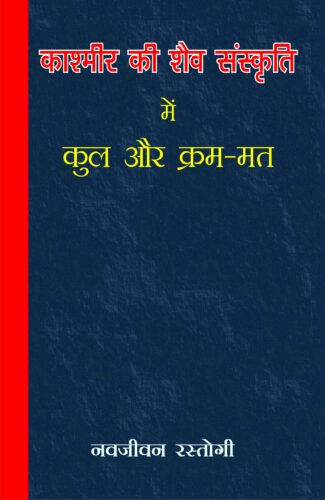
Amongst the traditions of the non-dual Kashmir Shavism, Krama and Kula have dominated the attention of the world scholarship. Going by the testimony of Jayaratha, the seminal notions of tantra-prakriya and kula-prakriya have largely determined Abhinavan enunciation of the intra-systemal variety. This monograph addresses all this in necessary detail charting historical evolution together with bringing to light some unpublished minor but useful tracts.
From within the fold of the tantric Shaiva non-dualism of Kashmir, Kula and Krama are the traditions that have fascinated most of the modern Indological scholarship the world over. This monograph, in the first place, attempts to approach the two traditions against the backdrop of their historical and evolutionary growth.
From this presentation emerges the fact that Krama is a living mode of contemplation and thought even today. If one goes by Jayaratha, the seminal processes of Kula-prakriya and Tantra-prakriya have been largely instrumental in formulating Abhinavan exegesis of the intra-systemal diversity. This process-centric approach has gone a long way in defining the tantric meaning, typological classification and distinctive ritual praxis. This aspect was first noticed and underscored by the author in his Krama Trantricism of Kashmir. The problem, since then, has been constantly engaging the mind of the scholars eliciting valuable contributions. The prime motivation for the author has been to utilise this occasion to reassess, in the light of the fresh data, the contextualisation in which Abhinava sought to situate Kula and Krama. This could be considered as the second highlight of the present essay. The third and, perhaps the foremost feature of this monograph lies in bringing to light some minor but significant texts, hitherto unpublished, belonging to the Kula and Krama, namely Chumma-sampradaya by Nishkriyanandanatha, Kaulasutra (Kulasutra) and Shodashasvarakala by Shitikantha, Shaivashtakakosha (fragments) and Jnanakriyadvaya-shataka by anonymous authors. With the printing of these MSS the corpus of the published literature on Krama and Kula has got richer.
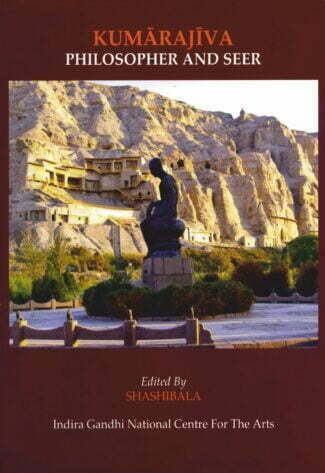
It is a compendium of recent researches on the brilliance that ushers through Kumarajiva’s legacy, enshrined in thousands of monasteries in China, Korea and Japan, preserving the heritage. His works inspired members of Imperial houses, Emperors, writers and artists, pilgrims and philosophers.
Kumarajiva, (Jiumóluóshi in Chinese), a philosopher and seer, had a long cherished mission: propagation of the true spirit of Buddhism. He broke political, geographical, cultural and linguistic barriers; travelled through barren lands and rivers, mountains and forbidding terrains to bequeath to us a casket of sacred sutras as the most authoritative presentations by translating them from Sanskrit into Chinese. He created pure, boundless and unthinkable versions of the sutras as an obeisance to the sacred voice so that one could bathe in the pure pond of the Dharma.
Kumarajiva: Philosopher and Seer is a compendium of recent researches on the brilliance that ushers through his legacy, enshrined in thousands of monasteries in China, Korea and Japan, preserving the heritage – his translations of the sacred Sanskrit texts copied over the last sixteen centuries. The life of Kumarajiva was unique in every aspect. His works inspired members of Imperial houses, Emperors, writers and artists, pilgrims and philosophers. His angelic presence can still be felt in the monastic establishments, in the sound of recitation of sutras and in the lives of the people that have been inspired over the centuries by his translations.
The researches done by scholars from world academia are included in the present volume on his date of birth, the towns and villages where he spent his life from childhood to nirvana, historically important events of his life, his contemporaries, his contribution to the cultural sphere of East Asia especially defining a new road for Mahayana Buddhism, philosophical theories and vision, comparative studies of his translations and echoes of his translations in Chinese literature.
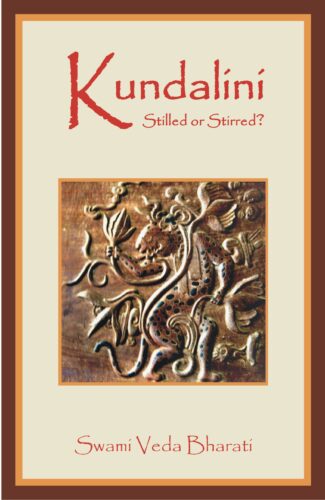
This book portrays kundalini from its psycho-physical and spiritual implications and impacts and tries to alleviate some misconceptions about the nature of cakras the consciousness centres of human body. It deals at length with the phenomena of higher levels of spiritual evolution raising the kundalini and opening the cakras.
“Tantra, an exposition of Sri-vidya, is a thread of Vedic tantu. This ray of the light of consciousness folds upon itself as a coil (kundala) forming the coiled energies of the conscious universe, thus becoming kundalini.
This book looks at Tantra from a different perspective against the common view of it being more associated with its carnal/sexual nature. Tantra is the “art of celibacy”. Human beings are a wave in the ocean of Consciousness and this wave passes through our psycho-physiological complex compound, forming the personal kundalini. All sensations in human body are manifestations of the presence of kuõóalinã. Our desires are the signals released by the kundalini. Different psycho-physical apparatuses are plugged into it like electric plugs in different socket.
This volume, while portraying kundalini from its psycho-physical and spiritual implications and impacts, tries to alleviate some misconceptions about the nature of cakras — the consciousness centres. It deals at length with the phenomena of higher levels of spiritual evolution — “raising the kundalini” and “opening the cakras” — helping one drop all mental habit patterns to achieve “liberation”.
This book is a “must read” for the practitioners of Yoga and all who want to take their spiritual life to a new realm. “
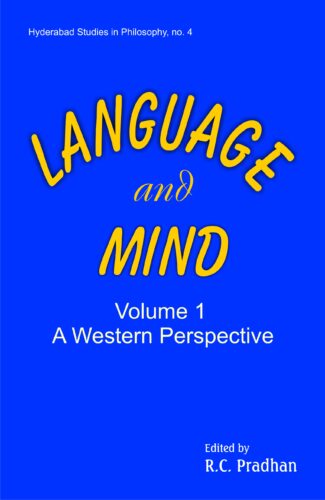
This work is a collection of papers dealing with the problems concerning the relation between language and mind. It focuses on the recent developments in the philosophy of language and mind, particularly with regard to the computational approach to this subject. This is the first of a two-volume project dealing with language and mind.
This work is a collection of papers dealing with the problems concerning the relation between language and mind. It focuses on the recent developments in the philosophy of language and mind, particularly with regard to the computational approach to this subject. The computational approach defended by Fodor and others has changed the very concept of language and mind thus ushering in a new philosophy in recent years. But, not unsurprisingly, there has been a vehement opposition to this approach led by Searle and others which has exposed the limitations of computationalism as a philosophical theory. The controversy regarding language, mind and meaning between the computationalists and their opponents is the main theme of this book. Besides these differing ideologies the book also highlights the general issues regarding meaning, intentionality, necessity, a prioricity, etc. which have an important place in the philosophy of language. This is the first of a two-volume project dealing with language and mind. This book deals exclusively with the Western perspective of the problems of language and mind, while Volume II will deal with the classical Indian approach.

This is a two-volume project which throws light on the various problem and debates on the relation between language and mind. They analyse both the classical Indian perspective as well as the Western perspective, stating that mind is behind all the linguistic activities.
The relation between language and mind is a fascinating area in both the Western and the Indian philosophical modes of thinking. Indian philosophers of language raise the question: How does the hearer derive knowledge from the speakers utterances? In the process of finding an answer, they developed some important insights into language and cognition, language generated awareness, etc. In many of their formulations the concept of mind is assumed as the background of linguistic activity. This volume throws light on various debates concerning the relation between language and mind as conceived in the Classical Indian Tradition. Papers in this volume have been arranged in three groups based on their thematic composition: (1) the inadequacy thesis proposed by the Madhyamika school of Buddhism and the Vedantins which suggests that language fails to express certain experiences; (2) the identity thesis held by the Grammarians which suggests that language is the Reality; and (3) the adequacy thesis supported by the Naiyayikas which suggests that whatever exists is capable of being known and whatever is known is capable of being expressed in language. This book is the second of a two-volume project dealing with language and mind. The first dealt with the Western perspective and the present work deals with the Classical Indian Perspective.

Dr. George Victor studies comprehensively Sankaracaryas teachings on Vedanta his views on scripture, perception and inference as pramanas or standards of knowledges; his explanations of the relation between Brahman and atman, Brahman and äsvara, maya and the world; and his concepts of jnana marga, karma marga and moksa.
Vedanta is recognised as the leading philosophy of the Vedic tradition. A major proponent of Vedanta was Shankaracarya who laid the basis for the propagation of Vedanta before the beginning of the Middle Ages. His contribution has been so immense and significant that often Vedanta has been interpreted as synonymous with Advaita Vedanta of Shankara.

Yoga is the science of harmonious union with one’s own self, the world, and the cosmic law that governs the entire universe. This book of commentary by Guru Nitya Chaitanya Yati unlocks the secrets of this perennial wisdom and shows how pertinent and valuable the transforming path of yoga is to our lives today.
At the turn of the twentieth century a wise teacher from south India described the culmination of Yoga in a very alluring manner: When mind, the bumble bee, sips the honey-like sweetness of ones own bliss, fluttering ceases and it is drawn into union. This poetic description given by Narayana Guru echoes and elaborates the definition of Yoga given in one of the foundation texts of Yoga, the Bhagavad Gita (VI:23): Yoga is disaffiliation from the context of suffering. These definitions are not academic. They speak directly to our experience of life, which can range from being punctuated by suffering to being permeated by it. They also speak to our constant yearning and search for happiness. Yoga originated as a natural response to this human condition. It is why it was developed, why its teachings have been followed, elaborated, and passed down from time immemorial to the present. Yoga is the science of harmonious union with ones own self, the world, and the cosmic law that governs the entire universe, ranging from the cognizing of a sensation to the formation of a galaxy. This commentary by Guru Nitya Chaitanya Yati unlocks the secrets of this perennial wisdom and shows how pertinent and valuable the transforming path of Yoga is to our lives today. A special appendix, Letters to an Aspiring Yogi, offers a basic orientation and initiation into the practice of Yoga, which, as Guru Nitya makes clear, Is a common path for all human beings, irrespective of their cultural, geographic, and religious affiliations.
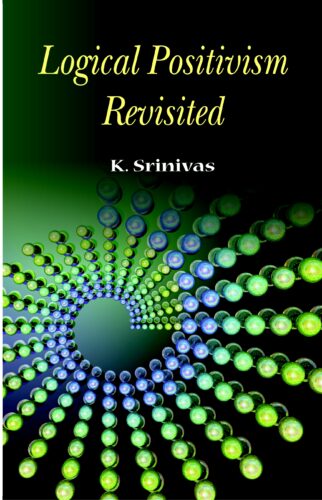
The book is an attempt to critically examine the cardinal doctrines of logical positivism as expounded in the writings of A.J. Ayer. Logical positivism has provided us with the tools to analyse the concepts of philosophy.
The book Logical Positivism Revisited is an attempt to expound and critically examine the cardinal doctrines of logical positivism. The logical rigour with which the followers of this school of thought analysed the issues concerning language, knowledge and truth shows that the problems of philosophy can only be solved by resorting to logical analysis. The view that problems of philosophy surface because of our misunderstanding or loose correlation of our language has provided a new dimension to our philosophical thinking. Moreover, logical positivism’s anti-metaphysical stance highlights its taste for logic, mathematics and science and its distaste for speculative thinking in philosophy. Such an attempt in philosophy is viewed by the logical positivists as a revolution in philosophy.
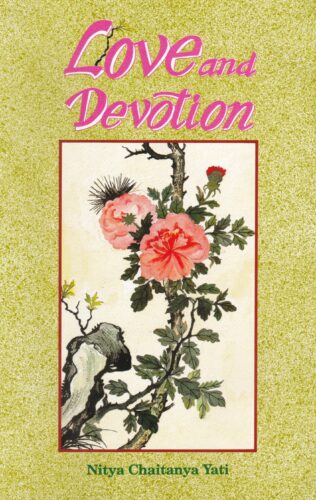
This book is essentially a poetic/spiritual treatment of poetic and spiritual themes. It presents a breadth of understanding that illuminates the text, and extends the meaning of the text through both personal and universal experience.
Developed from Guru Nityas talks given at the Stanford and Portland State Universities, the book represents a study in the universal force of love in two major examples of sacred and prophetic literature : Jayadevas Gita Govindam and the poetry of St. John of the Cross. The foundation of Guru Nityas approach lies in an exciting, at once original unification of Eastern meditation practices and Western humanistic psychological theory. The outcome is his Love and Devotion, highlighting how the erotic mysticism of Jayadeva and St. John of the Cross exemplify as the two different expressions of the perception of God. Unlike most works of literary criticism, Nityas book presents a breadth of understanding that illuminates the text, and then extends the meaning of the text in terms of both personal and universal experience. It is essentially a poetic and spiritual treatment of poetic and spiritual themes, for Love and Devotion is itself a treatise on spirituality.
| There are no products |